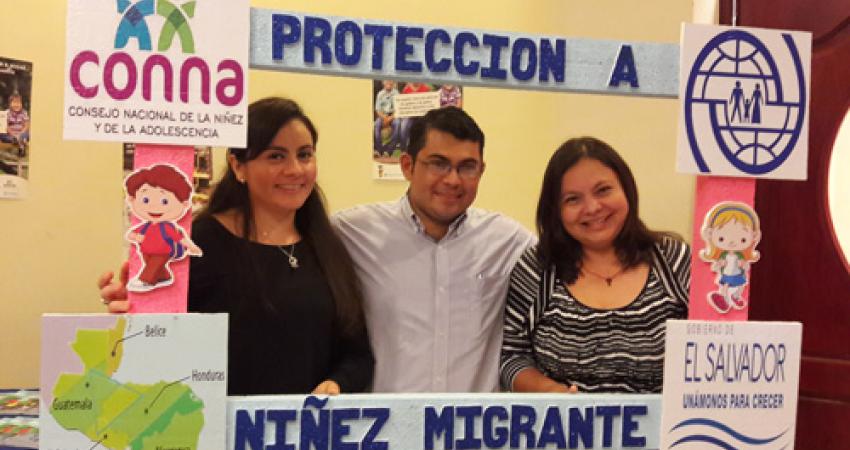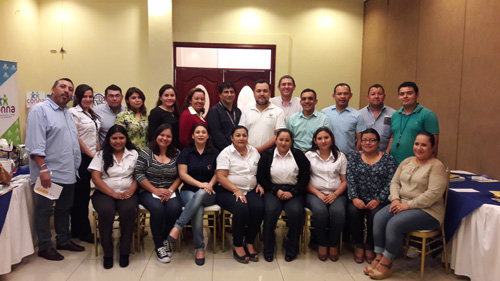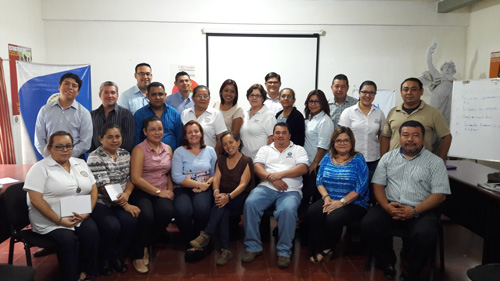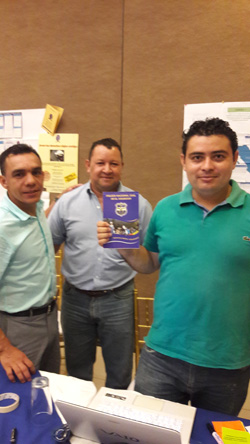Completion of the 2017 Specialized Course on Migrant Children in the Region

More than 300 government officials (from migration services, institutes for children and adolescents, consulates, the police and elsewhere) and civil society organizations in Mesoamerica successfully completed the Specialized Course on Migrant Children, developed by IOM, between April and June 2017.

The course was simultaneously implemented in Costa Rica, El Salvador, Guatemala, Honduras, Nicaragua and Mexico under the Regional Program to Strengthen Capacities for Protection and Assistance to Migrants in Conditions of Vulnerability in Mesoamerica (the Mesoamerica Program), implemented by IOM with funding from the US State Department’s Bureau of Population, Refugees and Migration.
The course has become a reference-point along the region especially in the Northern Triangle and Mexico, where it has been conducted during the past two years – mainly due to two of its main advantages: it reinforces general knowledge on migration for participants helping migrant children and it offers specialized and it offers specialized courses to develop skills and techniques on a variety of migratory issues, including best practices to ensure the best interest of migrant children.
The interdisciplinary approach was praised by participants. Particularly useful was including civil society in most of the courses, which allowed many to better understand the respective positions and roles of governmental and non-governmental organizations, thus improving coordination and complementary actions in the future.

In addition, the course allowed participants in some countries, where priorities are geared towards helping returned migrant children, to become more aware of the need to also act on prevention issues in countries of origin or transit.
Several institutions took a very active supporting role, allowing previously trained staff to facilitate the course and also providing facilities, transportation, etc.
Adapting the material to a country’s profile and needs was a good practice to encourage coordination between individuals and between institutions, as well as to identify challenges to this coordination. Another key achievement was the development of follow-up initiatives.

In El Salvador, as an initiative of the participating organizations, came the idea of creating a unique interviewing format for children, adolescents and migrant families, with the objective of facilitating care in a flexible, specialized, comprehensive, efficient and effective manner with respect to due process and in compliance with the identification of protection needs and, where appropriate, the adoption of special protection measures. This document would be very useful given that, according to the General Directorate for Migration, during 2016 this country received approximately 8,951 migrant children and adolescents. Between January and May of this year, another 1,357 cases were registered.
At the same time, IOM continues to urge the integration of the Course into existing academic programs and institutes. In Nicaragua, the IOM assisted teachers in the DGME’s Migration School to adapt the course, which the school then taught to 25 staff working at the airport and the central office of the General Directorate of Migration.
The IOM held a meeting with the Guatemalan Civil Police Academy to discuss how to integrate the course into general academic curricula within the framework of the existing academic program of four police training units. This will allow officers to be trained in the protection of migrant children before they take up their posts.
In El Salvador, the Training School for Child and Adolescent Rights and the Salvadoran Institute for the Integral Development of Children and Adolescents (ISNA) incorporated the migrant children's curriculum into their annual operational training plan, instructing a total of 50 people, and have already committed to do the same again in the next period. The IOM through the Mesoamerica Program has also supported the updating of the Specialized Diploma in Childhood and Adolescence in Risk and Social Vulnerability of the Chalatenango Shared Care Network (RAC).
